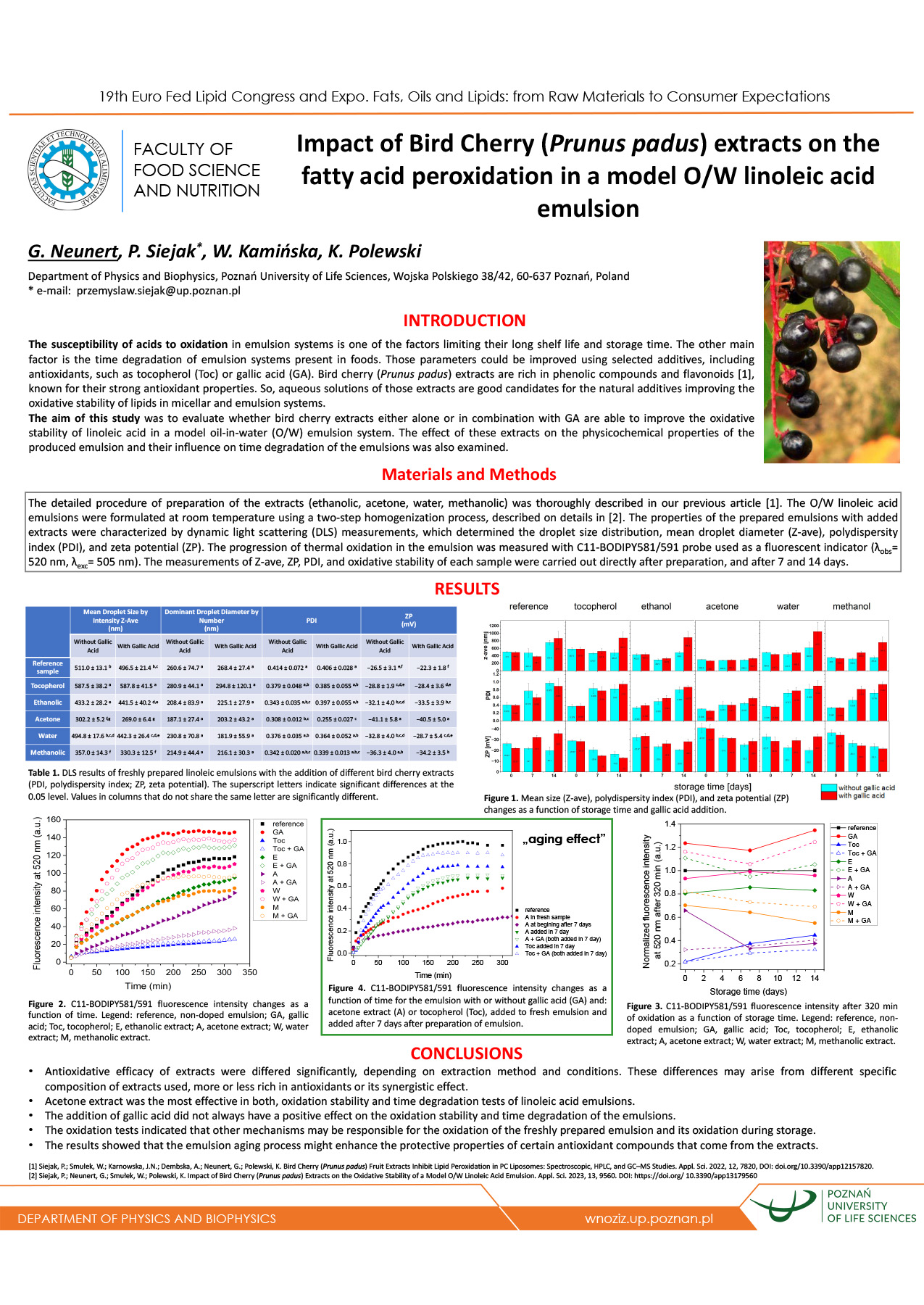Emulsions and emulsion like systems are widespread in a number of aspects in everyday life, including medicine, cosmetics, food and beverages and many more. Most of commonly used emulsions are oil-in-water (O/W) or water-in-oil (W/O) like systems. When it comes to food applications, for a healthy diet, it is important to uptake a number of active compounds, including selected saturated and unsaturated fatty acids. However, the susceptibility of acids to oxidation/autooxidation in emulsion systems is one of the factors limiting their long shelf life and storage time. The other main factor is the time degradation of emulsion systems present in foods. Therefore, in this study, we have decided to examine different bird cherry extracts’ impact on the oxidative stability of a model O/W linoleic acid emulsion. Those extracts are rich in phenolic compounds and flavonoids, known for their strong antioxidant properties. The thermal oxidation process of the lipids was measured with C11-BODIPY581/591 probe used as a fluorescent indicator. We have also examined the effect of these extracts on the physicochemical properties of the produced emulsion and their influence on time degradation of emulsions using Dynamic Laser Scattering (DLS) technique. Antioxidative efficacy of extracts were differed significantly, depending on extraction method and conditions. This differences observed in antioxidative properties of extracts may arise from different specific composition of extracts used, more or less rich in antioxidants or its synergistic effect. Our results also indicated that acetone extract was the most effective in both, oxidation stability and time degradation tests of linoleic acid emulsions. Moreover, used in the research the addition of gallic acid did not always have a positive effect on the above-mentioned properties.
Keywords: emulsion stability, phenolic compounds, flavonoids, BOBIPY 581/591, gallic acid, DLS.
